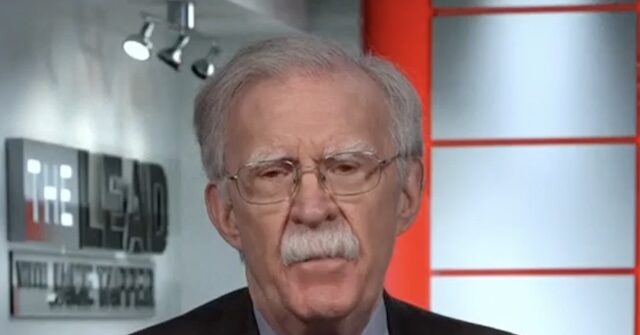In a recent appearance on CNN’s “The Lead,” former National Security Advisor John Bolton expressed concerns regarding President-elect Donald Trump’s leadership style and its implications for his cabinet selection. Bolton specifically criticized Trump’s expectation of unwavering loyalty from his advisers, suggesting that such a demand could ultimately be detrimental to both Trump’s governance and the country as a whole. In a discussion prompted by comments from Trump Jr. and JD Vance, Bolton articulated his belief that a prioritization of fealty over substantive qualifications could hinder the administration’s effectiveness.
Bolton characterized JD Vance’s remarks about excluding neoconservatives and war hawks from the Trump administration as indicative of a superficial understanding of government operations. He emphasized that his criticisms of Trump during his presidency were rooted not in specific policy disagreements but rather in Trump’s overall demeanor and inability to take accountability for his actions. Bolton maintained that a focus on loyalty and fealty from advisers is a misstep; instead, he argued that competent governance requires a diverse array of perspectives that may sometimes challenge the president’s views.
The exchange between Tapper and Bolton highlighted a growing concern among some Republican figures regarding the ideological homogeneity of Trump’s administration. Bolton asserted that screening advisers based on their personal loyalty to Trump, rather than their philosophical and professional qualifications, is a misguided approach. He pointed out that advisors who prioritize loyalty over expertise may fail to deliver the critical insights necessary to inform strategic decision-making. In essence, Bolton argued that the administration should encourage candid discourse rather than fostering an environment of compliance and subservience.
Further, Bolton warned that Trump’s preference for “fealty” could undermine the effectiveness of his presidency. He explained that advisers who are more focused on aligning with the president’s personal whims rather than offering sound, independent advice may lead to poor decision-making. According to Bolton, this could result in significant implications not only for Trump’s term but also for broader national interests. He poignantly noted that while Trump might secure short-term loyalty from his advisers, it could come at the expense of long-term governance and accountability.
The dialogue revealed tensions within the Republican Party as various factions begin to confront the future direction of Trumpism. As figures like Trump Jr. advocate for the exclusion of certain ideological groups, Bolton’s reflections serve as an important counterpoint. He implicitly challenged the notion that fealty alone constitutes good governance, emphasizing that a successful administration draws on a range of viewpoints and experiences. Such diversity in thought could ultimately play a key role in navigating the complex issues facing the nation.
In conclusion, Bolton’s critique of Trump’s approach to leadership encapsulates a fundamental concern regarding accountability and quality of governance. His insights shed light on the potential pitfalls of prioritizing personal loyalty over professional expertise among advisers. As the new administration takes shape, the ongoing debate about the balance between fealty and constructive dissent will likely influence the effectiveness of Trump’s presidency and the trajectory of the Republican Party in the years to come.

